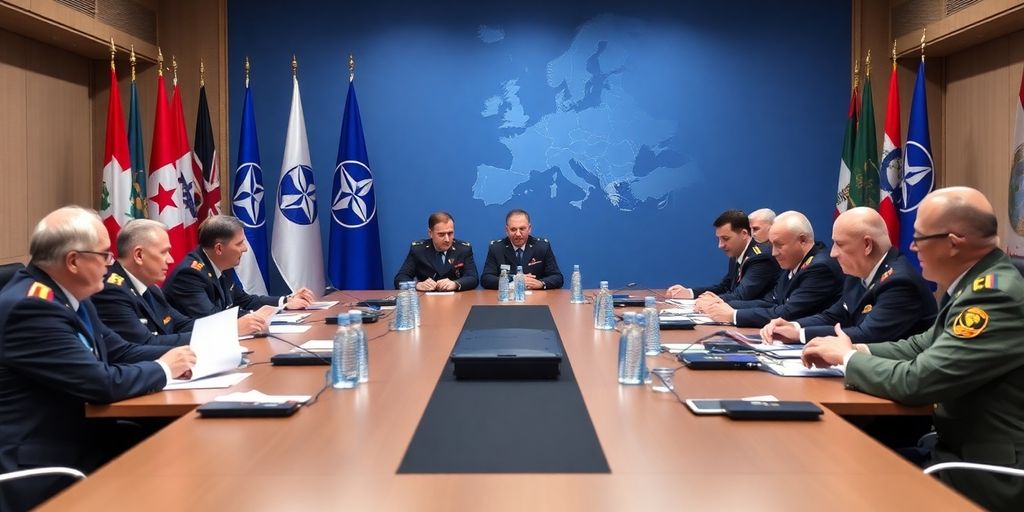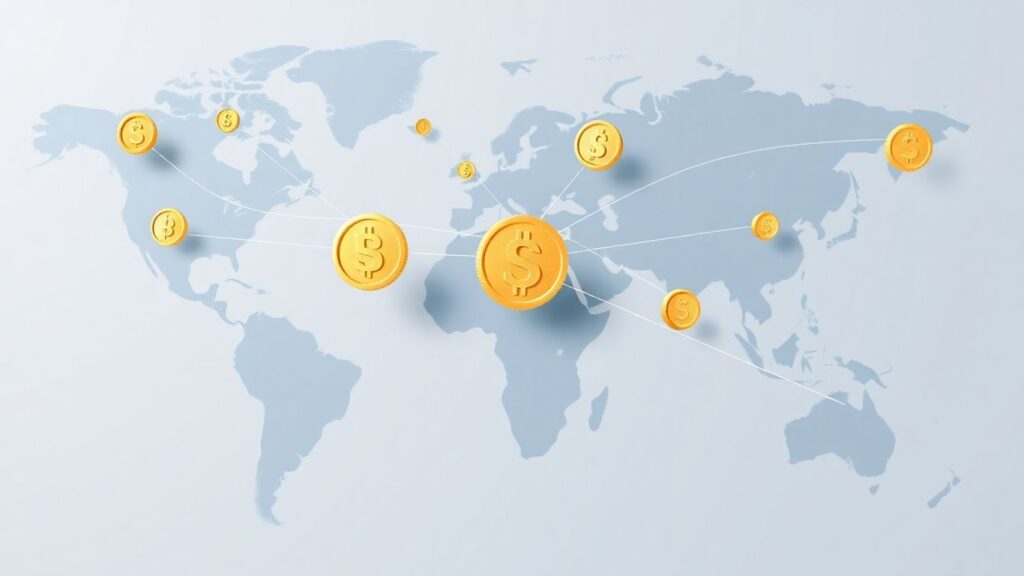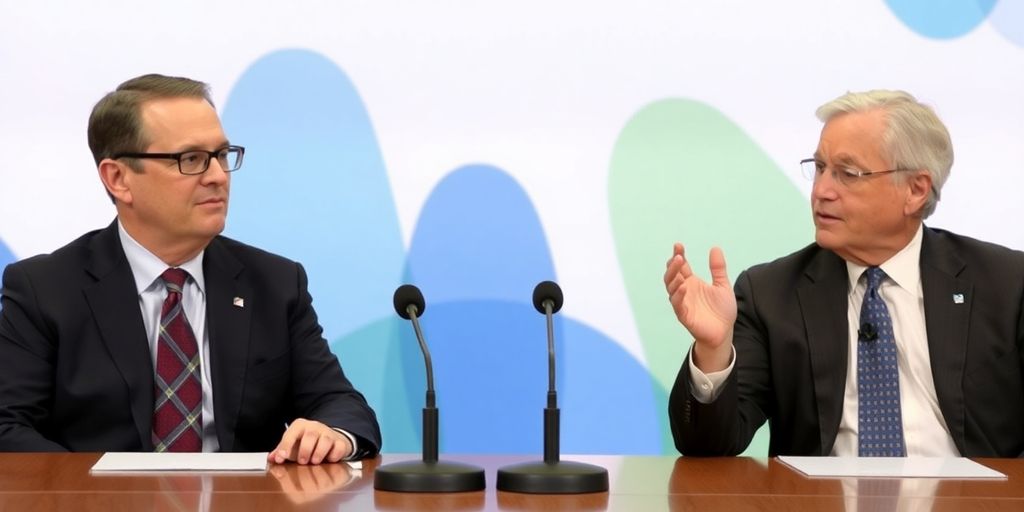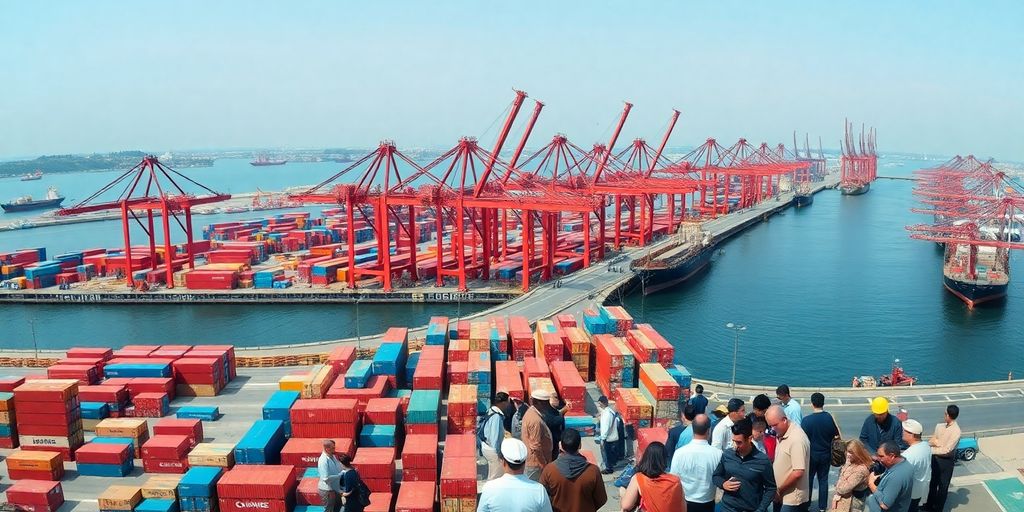Yanis Varoufakis in Conversation with Jeffrey Sachs on the Six Global Crises Confronting Humanity
What if the path we’re on leads to ruin? Yanis Varoufakis, the former Greek Finance Minister, and Jeffrey Sachs, the renowned economist, reunited to discuss the multiple crises facing humanity. From the war in Ukraine to the climate emergency, no topic was off-limits in this compelling conversation hosted by DiEM25. Were DM25’s predictions from a decade ago correct?
The 2025 Prophecy: Europe on the Brink
DiEM25, a radical pan-European movement, was founded almost 10 years ago. Back in 2015, a critical question was posed: How long before Europe, along with the prevailing neoliberal consensus, begins to crumble?
The prediction was grim: collapse by 2025. What were the reasons for this pessimistic outlook?
- Austerity measures hitting the majority hard.
- Socialism primarily benefiting bankers.
- Lack of investment in green and digital technologies.
- Europe’s subservience to the US and NATO.
- Entanglement in a new Cold War with China.
Interestingly, Julian Assange played a role, suggesting the inclusion of “25” in DM25’s name. It’s worth celebrating his freedom after years of incarceration.
Fast forward to 2025, and this prediction seems eerily accurate. Europe appears paralyzed, its industry is declining, and de-industrialization is setting in. Instead of being a beacon of hope, the continent is descending into war-mongering and experiencing political and moral decay, particularly evident in its stance on Palestine, leading to its diminishing global influence.
Flashback: Greece, Austerity, and the Arrival of Jeffrey Sachs
Let’s rewind to the 2015 Greek elections. The people of Greece voted against austerity policies. This is where Jeffrey Sachs, the esteemed Columbia University professor, enters the picture.
Sachs offered his help to Varoufakis. His impressive background includes advising numerous presidents, prime ministers, governments, and international institutions like the International Monetary Fund. Together, they went to Brussels, where Sachs witnessed firsthand the actions of key figures like Schäuble, Lagarde, and Draghi.
After these meetings, Sachs seemed transformed. He went from an insider to a passionate activist, campaigning against the destructive policies he observed.
Since 2015, the world has faced numerous challenges:
- The war in Ukraine.
- Failed climate summits.
- The dominance of the fossil fuel industry.
- A new Cold War against China.
- The genocide in Palestine.
- The rise of Trump and the response from the liberal establishment.
During these turbulent times, Sachs has emerged as a voice of reason, offering critical analysis and insights.
Sachs’ Take: Beyond American Shortcomings to European Failures
Sachs clarified that in 2015, he wasn’t an insider, but he still had hope for Europe. He’d seen the US make missteps in Vietnam, Iraq, Syria, Libya, and with NATO expansion.
The meeting with Schäuble was particularly shocking. Varoufakis explained the severity of the Greek crisis, including people foraging for food in garbage. Schäuble’s response? “Why are you telling me this? We have an agreement.” Sachs was surprised to see such arrogance in Europe.
Europe, according to Sachs, has failed to get its act together. He’s shocked that Europe can’t pursue peace in Ukraine, even with Trump offering an exit. What’s driving this? Inertia, extreme Russophobia, and a rearmament program that defies logic.
Trump’s position is clear: “This is Biden’s war. I’m getting out.” He’s unlikely to invest further in the conflict, despite opposition in Washington. The American people simply aren’t interested in this war.
So, what are Ukraine’s options? Destruction on the battlefield or peace. Sachs believes Europe’s call for Ukraine to “fight on” is misguided and destructive.
The path to peace involves recognizing that Russia doesn’t want endless war. Ukraine should be a neutral country, independent from both NATO and Russia. Why is neutrality so controversial? Sachs points out that neutrality is a “dirty word” in the US.
He attributes much of this to American arrogance and a failure to embrace peace in 1991. Instead, the US adopted a “We won, you lost” mentality, expanding NATO, deploying missile systems, and abandoning nuclear treaties.
From Ukraine to Global Trade
What about Trump’s plans for trade and the monetary system? Steven Mnuchin’s position paper suggests dividing the dollar while strengthening its privilege. Is there a rational plan behind the apparent chaos?
Sachs argues that success comes from investing in science, technology, education, and infrastructure, not manipulating currencies. Trump is undermining long-term growth by attacking universities and failing to address inequality.
He highlights macroeconomic realities like large trade deficits caused by budget deficits and the dollar being used as an “endless credit card.” Both parties are fiscally irresponsible, and the political system is corrupted by campaign contributions.
Tariffs, according to Sachs, are ineffective and hurt more than they help in global supply chains. Depreciating the currency and cutting taxes will only lead to inflation.
Despite these criticisms, Sachs gives Trump credit for seeking to end the war in Ukraine and for engaging in negotiations with Iran. Overall, however, he views Trump’s policies as bizarre, dangerous, and incoherent.
The Ascent of China: A New World Order?
Could countries like Germany or Vietnam stand up to Trump, or will they succumb to his deals?
Sachs believes the world trading system will move forward without the US, leading to US isolation. Trump wants the US at the center, with other countries joining against China. However, the real economic power of the US is less than Trump believes. The US imports aren’t significant enough to force countries to align with its policies.
The idea that China will flood Europe with goods, provoking an anti-China response, isn’t accurate. China has already diversified its exports.
As a debtor nation, the US doesn’t have a strong hand. Trump is playing poker, a game of bluff, and overestimating his power.
China is actively pursuing diplomatic efforts and isn’t going to lose its trade relationships. Sachs sees the US as a diminishing force in the world, not the sole superpower. China is openly discussing internationalizing the renminbi, signaling the end of the dollar’s dominance within the next 10 years.
Could China transform BRICS into a new Bretton Woods system, anchored by the renminbi? Sachs notes that China is gradually opening up, with lower interest rates than the US. China is financing the world and creating renminbi-based finance, supporting outward investments, particularly in Southeast Asia.
The dollar’s privilege will end due to:
- The shrinking weight of the US in the world.
- Abuse of the dollar for foreign policy (weaponization).
- The primitive clearing system of Swift.
China’s seamless integration of algorithmic capital and finance, with WeChat and its digital currency, poses a further threat. Meanwhile, the US is playing games with crypto, undermining the dollar.
If Trump feels his bluff is failing, could he provoke China over Taiwan? Sachs warns that any action the US takes with Taiwan is playing with fire and could lead to a devastating war.
Palestine and the Climate Crisis: A Call to Action
The world is witnessing a genocide in Palestine, comparable to 1938. The EU is complicit in facilitating this genocide. What’s the solution? A state of Palestine alongside Israel on the 1967 borders, as supported by the International Court of Justice, the UN, the Arab League, and BRICS.
The US vetoes Palestine’s entry into the UN, influenced by the Israel lobby and Christian Zionism. Sachs argues that this isn’t in America’s interest.
The American ambassador in Israel doesn’t even believe in the existence of a Palestinian people.
Turning to the climate emergency, the agenda is dominated by the fossil fuel industry. Time has run out to meet the goals of the Paris climate agreement. Warming has accelerated, and we’re in a dangerous period.
China offers a glimmer of hope, massively installing zero-carbon energy and developing technologies for the energy transformation. The US, under Trump’s “drill baby drill” mentality, is falling behind.
Sachs believes the US has conceded leadership to China. While Europe is faltering, 85% of the world’s population still understands the urgency of the climate crisis.
Academia at a Crossroads: From Thinking to Commodification
Varoufakis reflects on the commodification of academia, a far cry from its original purpose as a community of scholarship. Would he still choose this path today?
Sachs acknowledges the challenges but emphasizes the enduring value of academic life. Universities will be reinvented through technology and global communities. Despite the commodification, he cherishes the opportunity to learn something new every day.
Both agree that those with the privilege of an academic life must fight to ensure that others can share in it.
Before concluding, DM25 reminds the audience that it’s a radical movement that relies on contributions from individuals, not corporations or governments.
Final Thoughts
Varoufakis and Sachs’ conversation paints a sobering picture of a world in crisis. From the rise of China to the plight of Palestine, from a failing Europe to the commodification of academia, the challenges are immense. Yet, their discussion also offers glimmers of hope, reminding us of the importance of critical thinking, global cooperation, and unwavering commitment to a better future.








Responses